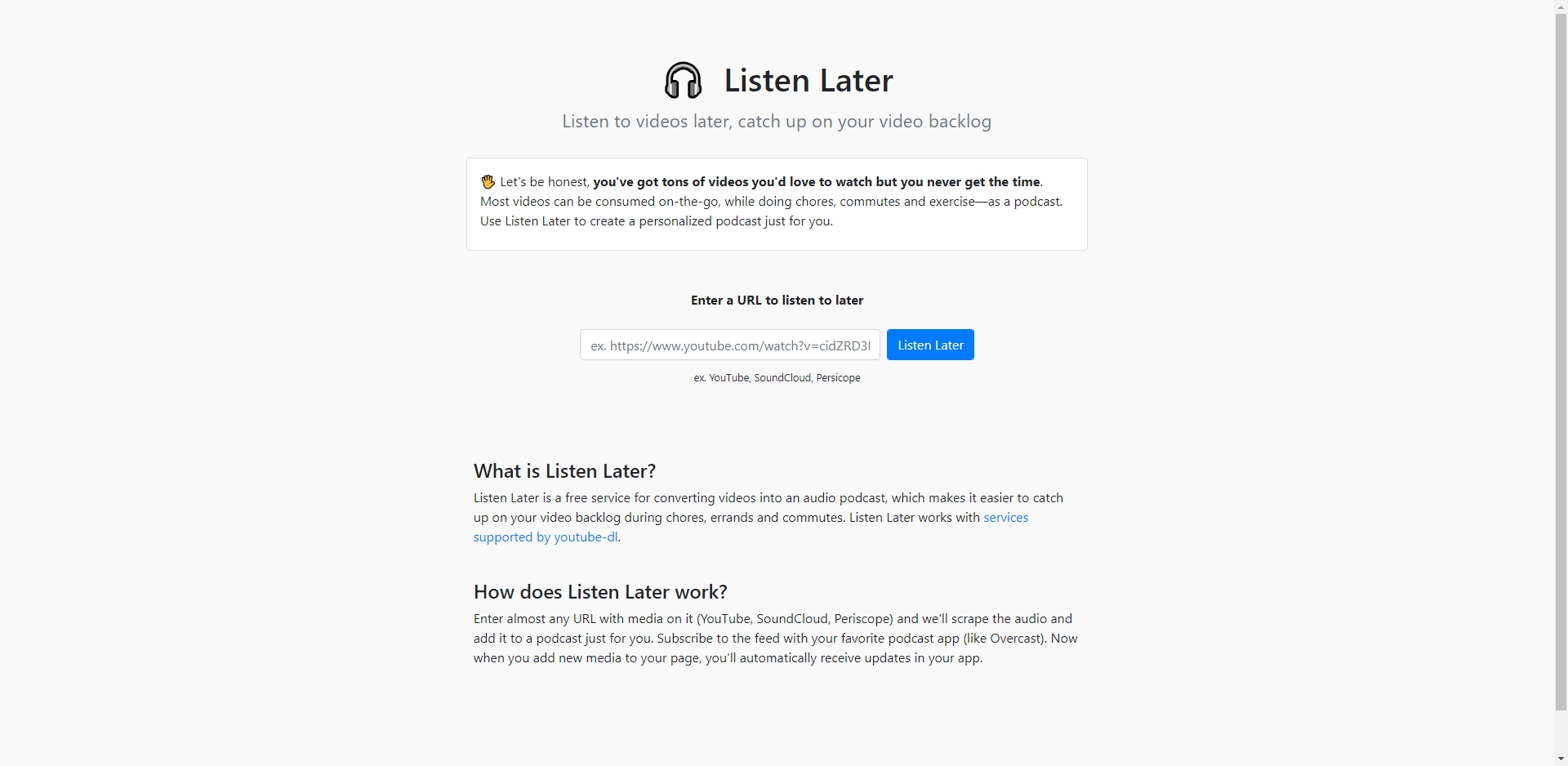
- #Facebook listen later appears as 3 but i dont have one android#
- #Facebook listen later appears as 3 but i dont have one code#
- #Facebook listen later appears as 3 but i dont have one plus#
In 2021, eMarketer published a report(paywalled) detailing all the data that’s used to target people with ads, where the data comes from(first-party, second-party and third-party sources) and all the scary data sources tech companies are planning to start mining next. You can disable this off-facebook tracking here. However, this is done in aggregated groups – so it’s not specific or personal to you.
#Facebook listen later appears as 3 but i dont have one plus#
The newsfeed algorithm uses that as a signal plus other data points including age, friends, what you clock on and where and when you post to figure out which ad to target you with. The data included websites visited, how long you were there and if you decided to buy or not.
#Facebook listen later appears as 3 but i dont have one code#
The pixel is a small piece of code that is embedded in nearly every app and website and sends anonymized data to Facebook to aggregate. READ: Privacy Changes You Need to Make Right Nowįacebook and other tech companies don’t have to tap into your smartphone when they are other legal and cheaper methods to collect data on you.įacebook is using FB Pixel and its newsfeed algorithm. What people don’t seem to understand is that there’s a lot of other tracking in daily life that doesn’t involve your phone’s camera or microphone that give a third party just as comprehensive a view of you,” said David Choffnes. “We didn’t see any evidence that people’s conversations are being recorded secretly. The paper discovered something else – apps recording a phone’s screen and sending that information out to third parties. Scientists researching if smartphones really listen in didn’t find that out.

Even using targetable keywords to trigger recording is not feasible as that would require a ton of speech-to-text translation and natural language processing. The amount of data Facebook would have to collect through the microphone from users around the world would be too huge and it would be too detectable to record. End result: You go to a store and see ads for items sold at or near that location.It’s technically impossible – though it hasn’t stopped tech companies to keep on trying(more on that below). The Cluse website oozes a "fashionable new media" feel, so relying on those advanced ad technologies seems reasonable. You may fit the demographic for Cluse watches based on age, gender, income, other purchases, or any of a thousand other metrics. Even if it didn't, it's entirely possible that you could be associated with certain products simply because you were in the vicinity of where they are sold. If your phone connected to its wifi, then a whole host of ads could be associated with your account. It knows you're in a store, or shopping center. End result: you see ads for The Bachelor.Īs for the the watches, that's easy enough. Through association, and based on preferences the show's PR/ad agency put in place with advertisers, the interest extends to associations: you. I had a quick look, and the new season of the show started just last month, and there's been an uptick in Bachelor-related news and ads. Maybe she's looked up, liked, or otherwise engaged with The Bachelor news. A connection is made between you and your sister through proximity. Your phones have GPS, maybe your phones were on the same wifi network and using the same IP address for egress.
#Facebook listen later appears as 3 but i dont have one android#
Maybe you both have Android phones and are on each others' contact lists. You and your sister are both on Facebook. Say you and your sister were both at the same location - that's where the conversation started. End result: you see ads for The Bachelor.Ĭonsider a different possibility. Those words are checked against common ad-related words and, where found, those ads are marked as relevant to you. There, the audio is analyzed for human voices and words are teased out. It's certainly possible that an app has been recording ambient audio and sending it back to the mothership for processing. Now, that's not to say your experience is wrong, exactly.

Humans seek out patterns, and when we can't find them, our brain makes them up. We don't notice all the clouds that don't look like animals, or the times we get toast with no religious affiliation whatsoever. Here's the thing: We forget that the car we've been looking at has been increasing in popularity and advertising for years. Humans are always trying to find order in randomness - mostly because we can't comprehend probability.

We go car shopping and notice the model we've been looking at appears everywhere. Or rather, it would be more accurate to say that humans look for patterns.


 0 kommentar(er)
0 kommentar(er)
